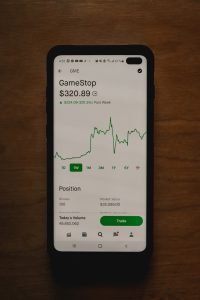When it comes to trading in the forex market, choosing the right broker is crucial for your success. A forex broker acts as an intermediary between you and the interbank market, enabling you to execute trades and access various financial instruments. However, with the vast number of forex brokers available, it can be overwhelming to find the best one for your trading goals, especially if you are looking for a broker with no minimum deposit requirement. In this article, we will discuss the key factors to consider when choosing the best forex broker with no minimum deposit for your trading goals.
Regulation and Security
The first and foremost consideration when selecting a forex broker is their regulation and security measures. It is essential to choose a broker that operates under a reputable regulatory authority. Regulatory bodies such as the Financial Conduct Authority (FCA) in the UK, the Australia Securities and Investments Commission (ASIC), or the Cyprus Securities and Exchange Commission (CySEC) provide oversight and ensure that brokers adhere to strict financial standards.
Regulation ensures that the broker segregates client funds from their operational funds, providing an additional layer of security for your investment. Additionally, regulated brokers often have investor compensation schemes in place, which protect your funds in the event of the broker’s insolvency.
Trading Platform and Tools
The trading platform provided by a forex broker is the software you will use to execute trades and monitor the markets. It is important to choose a broker that offers a user-friendly and reliable trading platform, as it directly impacts your trading experience.
Consider whether the broker offers a web-based platform, a downloadable software, or a mobile trading app. A web-based platform allows you to access your trading account from any device with an internet connection, while a mobile app enables you to trade on the go. Additionally, ensure that the platform provides a wide range of technical analysis tools, charting capabilities, and order types to suit your trading strategy.
Spreads and Commissions
Another crucial factor to consider when choosing a forex broker is the cost of trading. Brokers typically earn their revenue through spreads and commissions. Spreads are the difference between the bid and ask price, and they can significantly impact your profitability. Lower spreads are generally more favorable, especially for short-term traders.
Some brokers offer fixed spreads, while others offer variable spreads that can widen during periods of high market volatility. Additionally, consider whether the broker charges any commissions on trades. Some brokers offer commission-free trading, while others charge a fixed or percentage-based commission on each trade. It is important to compare the spreads and commissions offered by different brokers to find the most cost-effective option for your trading style.
Financial Instruments and Leverage
Before choosing a forex broker, evaluate the range of financial instruments they offer. While all brokers provide access to major currency pairs, you may also be interested in trading exotic currency pairs, commodities, indices, or cryptocurrencies. Ensure that the broker offers the financial instruments you are interested in, as it will determine the diversity of your trading portfolio.
Additionally, consider the leverage offered by the broker. Leverage allows you to control larger positions with a smaller amount of capital. However, it also increases the risk of potential losses. Different brokers offer varying leverage levels, so choose a broker that provides leverage options suitable for your risk appetite and trading strategy.
Customer Support and Education
The quality of customer support and educational resources provided by a forex broker can significantly impact your trading journey. Ensure that the broker offers prompt and efficient customer support, preferably with multiple channels of communication such as live chat, email, and phone support.
Educational resources such as webinars, tutorials, and market analysis can be invaluable for both beginner and experienced traders. A broker that offers comprehensive educational materials demonstrates their commitment to helping their clients succeed. Additionally, consider whether the broker provides a demo account that allows you to practice trading strategies in a risk-free environment before investing real money.
Conclusion
Choosing the best forex broker with no minimum deposit is a critical decision that can greatly impact your trading success. Consider factors such as regulation and security, trading platform and tools, spreads and commissions, financial instruments and leverage, as well as customer support and education. By carefully evaluating these factors, you can find a broker that aligns with your trading goals and provides a safe and efficient trading environment.





